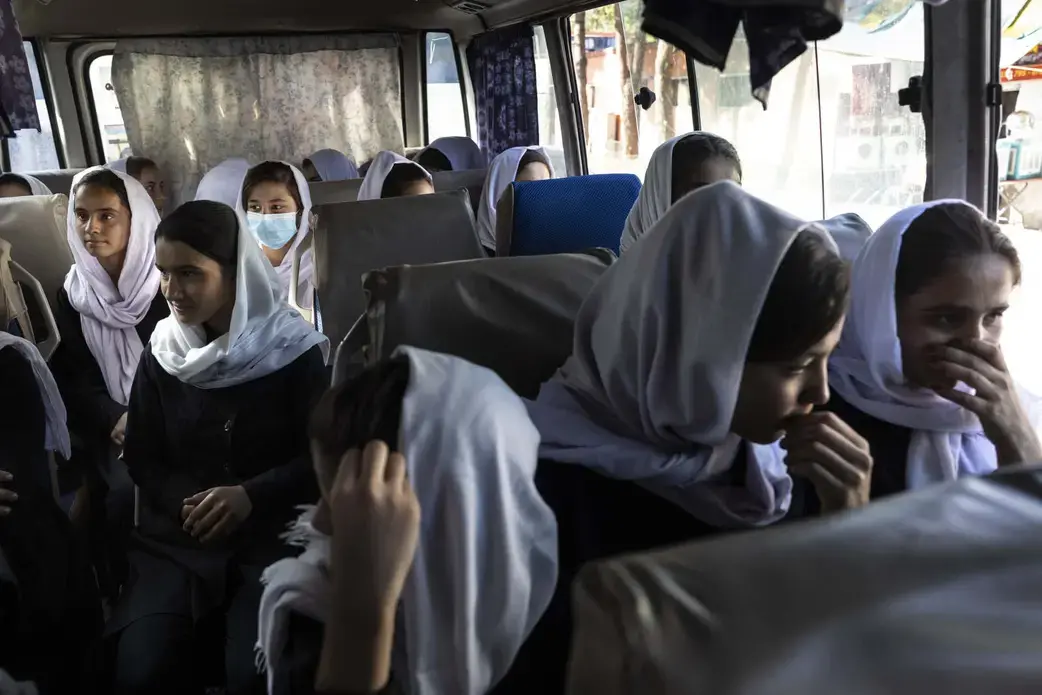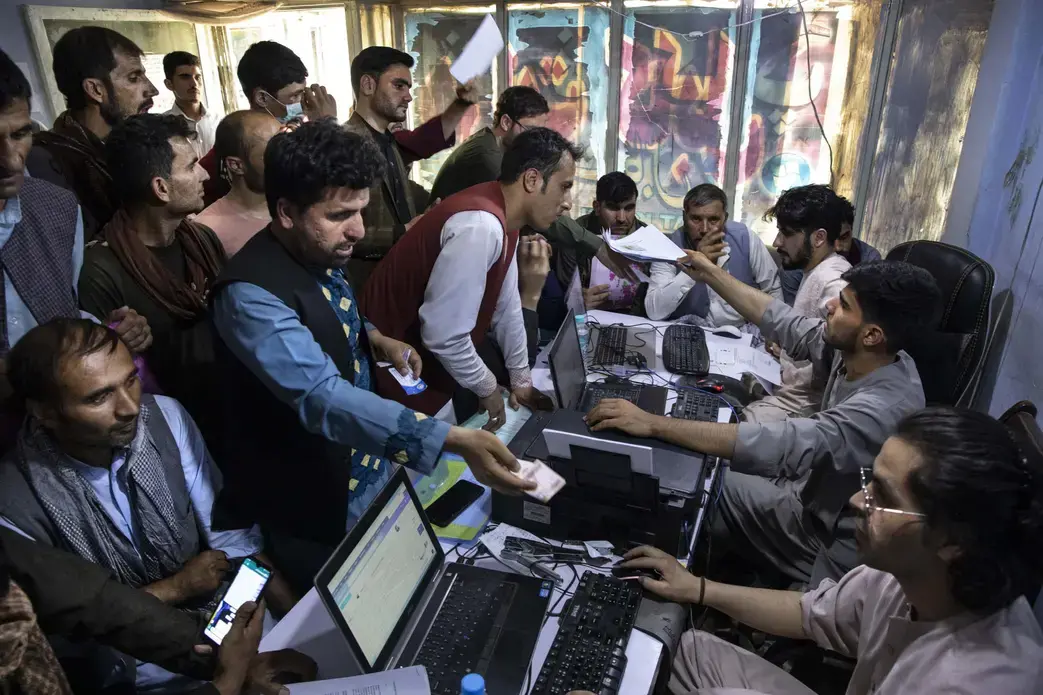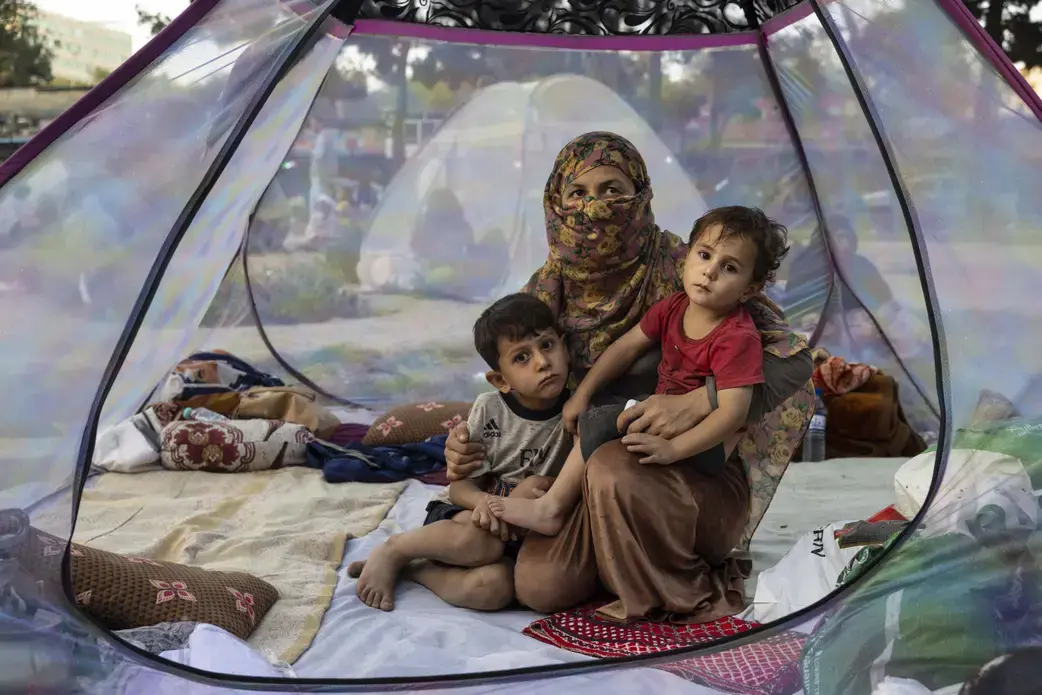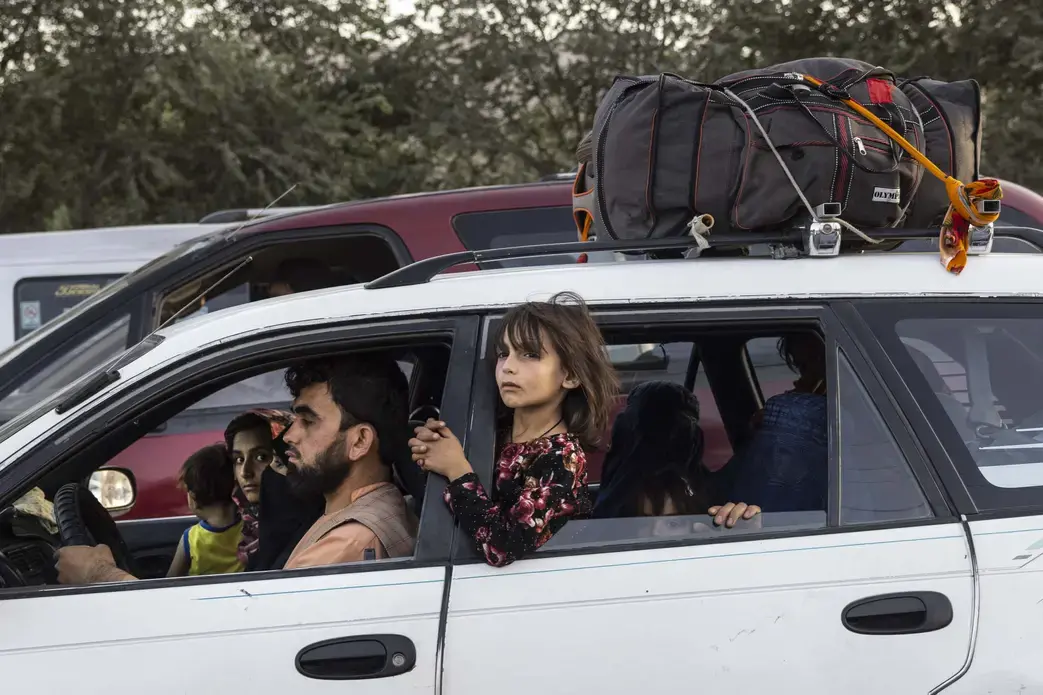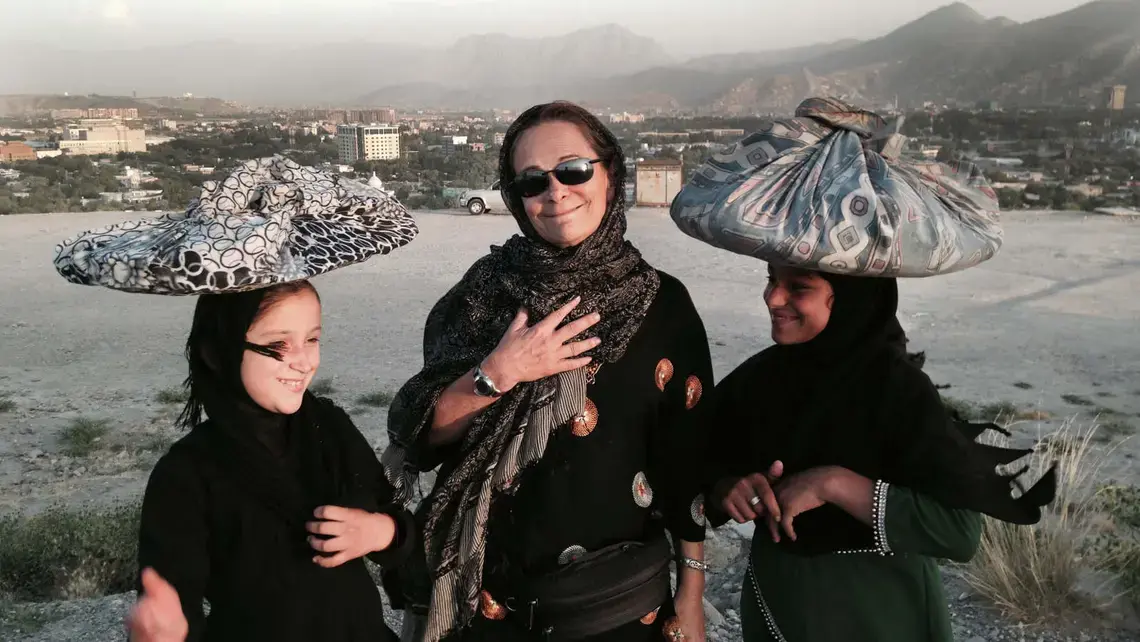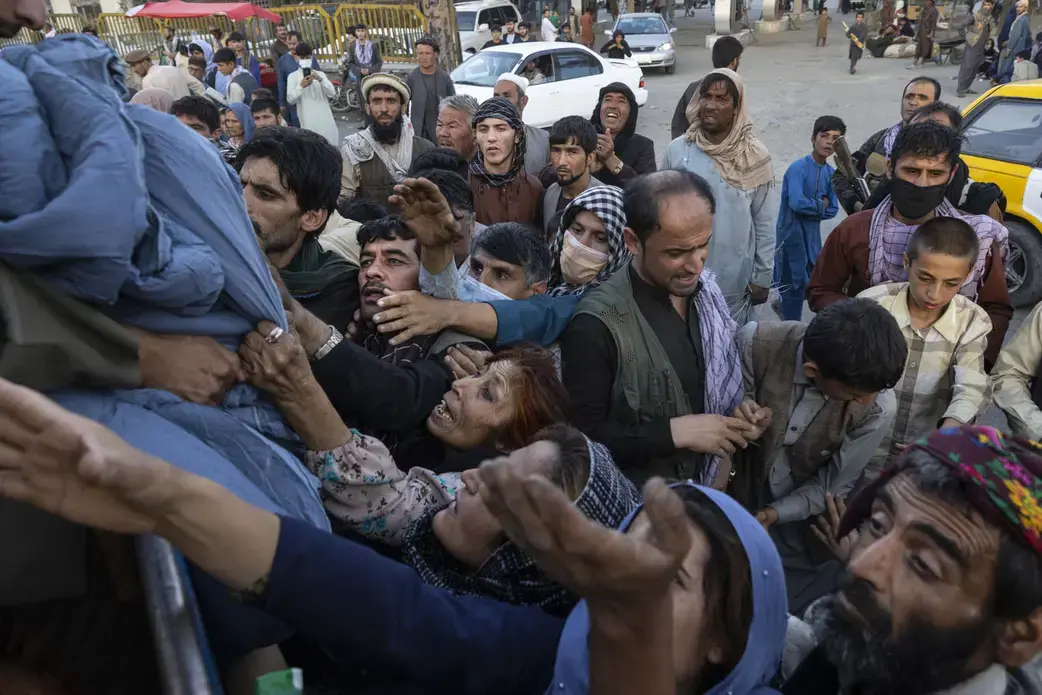A week after her evacuation from Afghanistan, celebrated photojournalist Paula Bronstein is already planning her imminent return.
“Right now it’s just a matter of getting back to a place I left and was stressed out about leaving to begin with,” Bronstein says. “I didn’t leave with the intention of not going back, I was evacuated.”

As a nonprofit journalism organization, we depend on your support to fund more than 170 reporting projects every year on critical global and local issues. Donate any amount today to become a Pulitzer Center Champion and receive exclusive benefits!
Bronstein, one of the top photojournalists in the world, has been covering Afghanistan since 2001. She is the author of internationally acclaimed photo book Afghanistan: Between Hope and Fear and the winner of numerous awards — among them the World Press Photo first prize, the British Journalism Awards’ Photojournalist of the Year and a Pulitzer Prize finalist for breaking news.
Having lost friends and colleagues who were covering war zones, Bronstein insists she “plays it pretty safe.” However, now that the fighting is over, she says most of Kabul is calm and she believes it is important to return if she can, to document life under the Taliban.
This time Bronstein had been in Afghanistan for two months and had originally planned to stay until September 5. Her mission was to document the experiences of the Afghan people as the US and its allies pulled out and she felt “tremendously conflicted” about leaving before the job was done.
When she awoke on Friday, August 13, to news that the Taliban had taken Kandahar, Afghanistan’s second largest city, she was not going to wait around to see if the transition was peaceful or violent and chaotic.
“I called and said ‘put me on the next flight out,’” Bronstein recalls. “That was my red line — you have to calculate these things. As soon as Kandahar fell, next would be Mazar, and then it would just be hours not days. Nobody could say with certainty how it was going to happen.”
Bronstein boarded a packed flight out of Kabul on Saturday a week ago, her departure aligning with Afghan President Ashraf Ghani, who fled rather than negotiate a deal that would delay the arrival of the Taliban.
It turned out to be the second last commercial flight out of the country. Kabul International Airport was soon over-run, preventing many others from leaving.
Bronstein missed the scenes at the Kabul airstrip, with military flights taking off with hundreds of Afghans on board. The images of desperate people clinging to the underside of the plane only to fall to their deaths over Kabul shocked the world, but Bronstein says such chaos was inevitable.
“That was naturally going to happen,” Bronstein says. “When a government falls there’s nothing for the people to do but panic and try to leave the country.”
In Bronstein’s view, the US and its allies did enough to try to help interpreters, and other Afghans who had helped them in the decades-long conflict with the Taliban, leave the country.
“I think so — I mean they can’t wave a magic wand and fix everything, right?” she says. “It just happened much faster [than expected]. Everybody was shocked, absolutely shocked.”
Yet Bronstein also understands the rapid surrender of the Afghan forces, despite the US having spent years training them. The problem was the Afghan government was not paying or feeding its soldiers properly and in many cases the soldiers’ own villages had already been taken over.
Bronstein has travelled extensively throughout Afghanistan. She worked for Getty on staff until 2013 and then as a freelancer.
When asked how the mood of the Afghan people had shifted over the years, she pointed out that the name of her 2016 book was Between Hope and Fear. “Mostly I would say it’s been fear for quite some time.”
“What was different for the Afghans this time was the Taliban were taking over the country,” she says. “They were driven from their homes in the northern provinces and forced to flee to Kabul. In the south, it was equally as horrific. The Afghans were shocked that the Taliban were taking over at such a speed, and doing it on a very efficient level.”
On this trip, Bronstein stayed mostly in Kabul because the security situation made internal travel “almost impossible.”
But the story was coming to Kabul. Among her recent work are striking images of Afghans displaced from conflict zones, such as in northern Afghanistan, living in makeshift camps in Kabul’s city parks. Bronstein covered that story for three days’ straight.
The humanitarian community has verified 17,600 internally displaced persons who arrived in Kabul between July 1 this year and August 15, when the Taliban took Kabul. There would be thousands more since.
She also covered the impact of coronavirus on Afghans, the students at a girls’ school and talented youth, such as two young musicians, who were trying to leave the country ahead of the Taliban takeover. She hopes to follow up with those who haven’t already managed to flee the country when she returns.
Bronstein, whose career as a photojournalist spans three decades, says she has produced some of her best work in Afghanistan and her empathy and understanding of the Afghan people and their culture is what keeps her coming back.
She says being a woman makes the job both easier and harder. “What makes it easier is dealing with women — I can relate to women very easily, and they relate to me, it’s fantastic. The relationship with Afghan women is the best,” Bronstein says.
“What’s more difficult is doing things in mosques and things that are male dominated. There’s plenty of things that are a hassle for a woman. And even when I’m trying to gain access to a woman’s domain, I usually have to ask permission from male relatives.”
She does not think this will be heightened under the Taliban: “It was pretty heightened before — I don’t see how it can be worse.”
When she left, many women in Kabul were already covering up with the burqa; Bronstein herself has always worn a headscarf when working in Afghanistan but does not intend to wear a burqa.
Yet she doesn’t know what will be waiting for her when she returns.
“This is just the last chapter of war for me, but now that we’re in the Taliban era again, it’s so shocking, I have no words,” she says.




